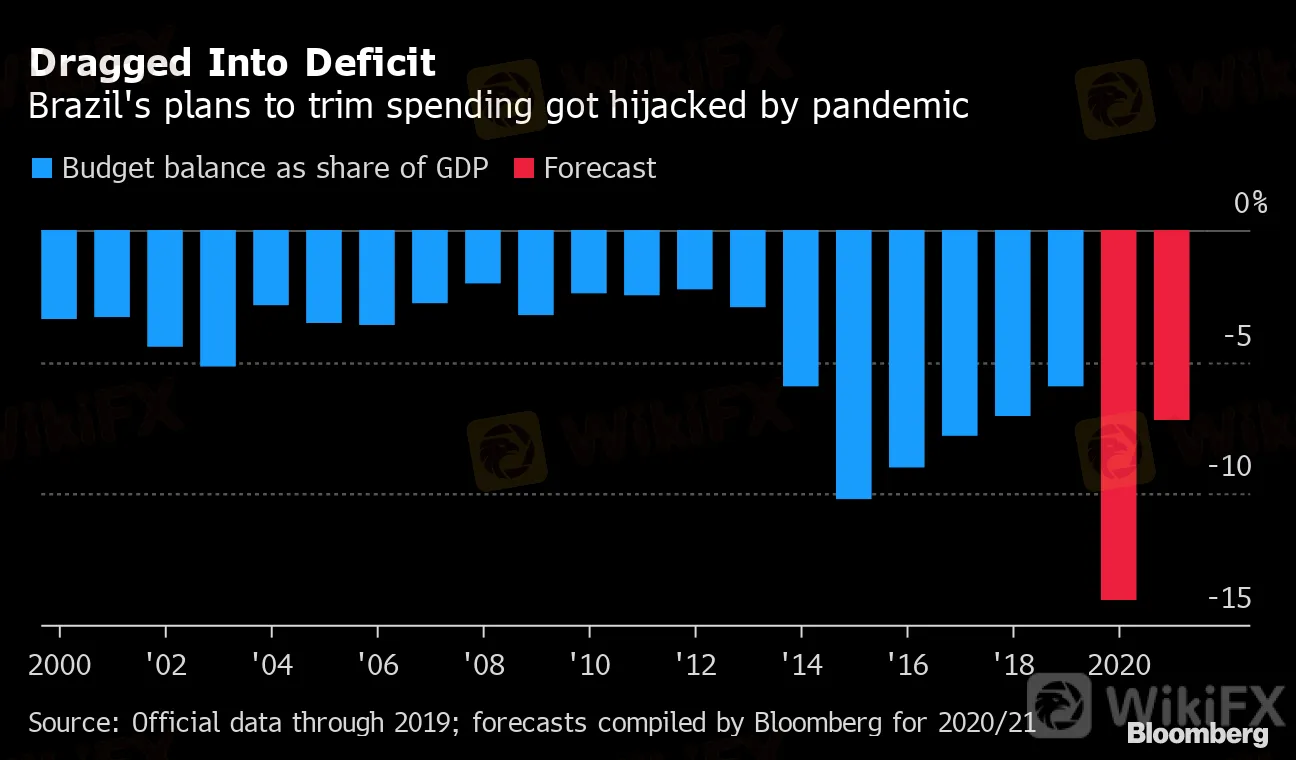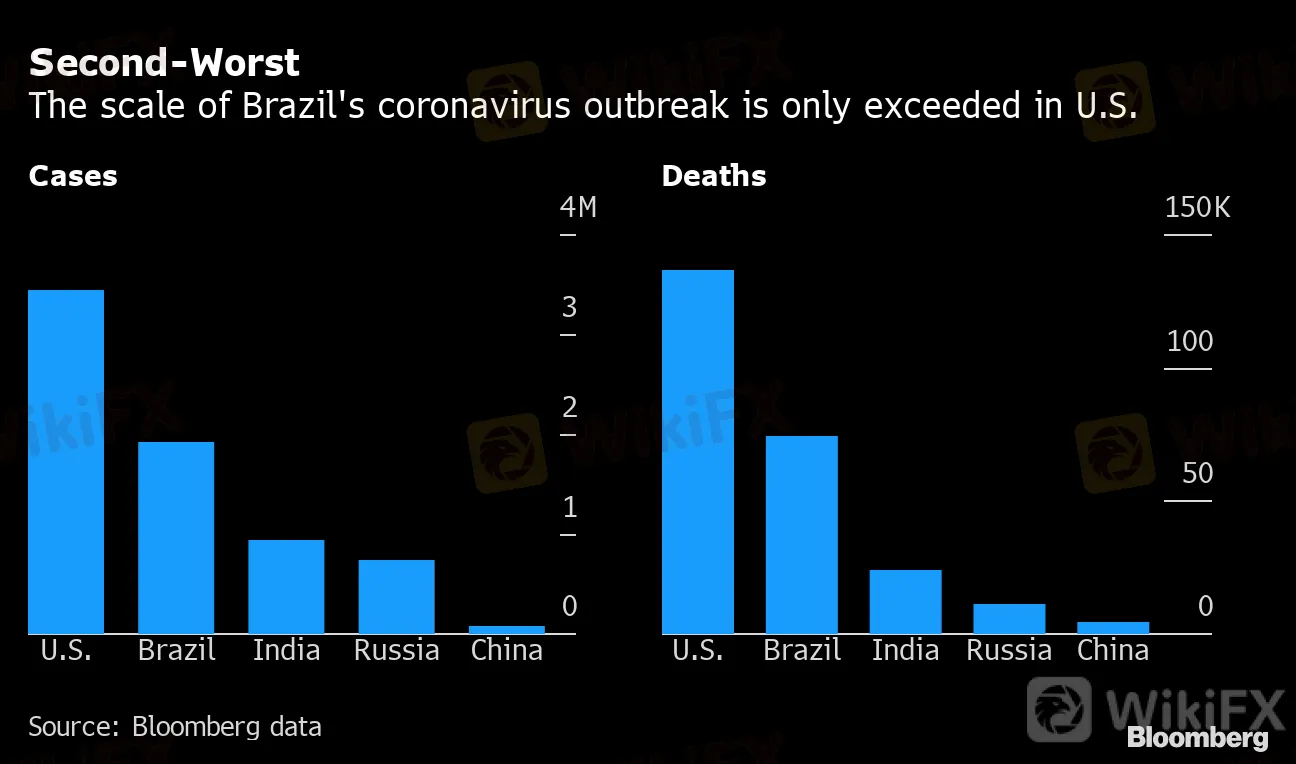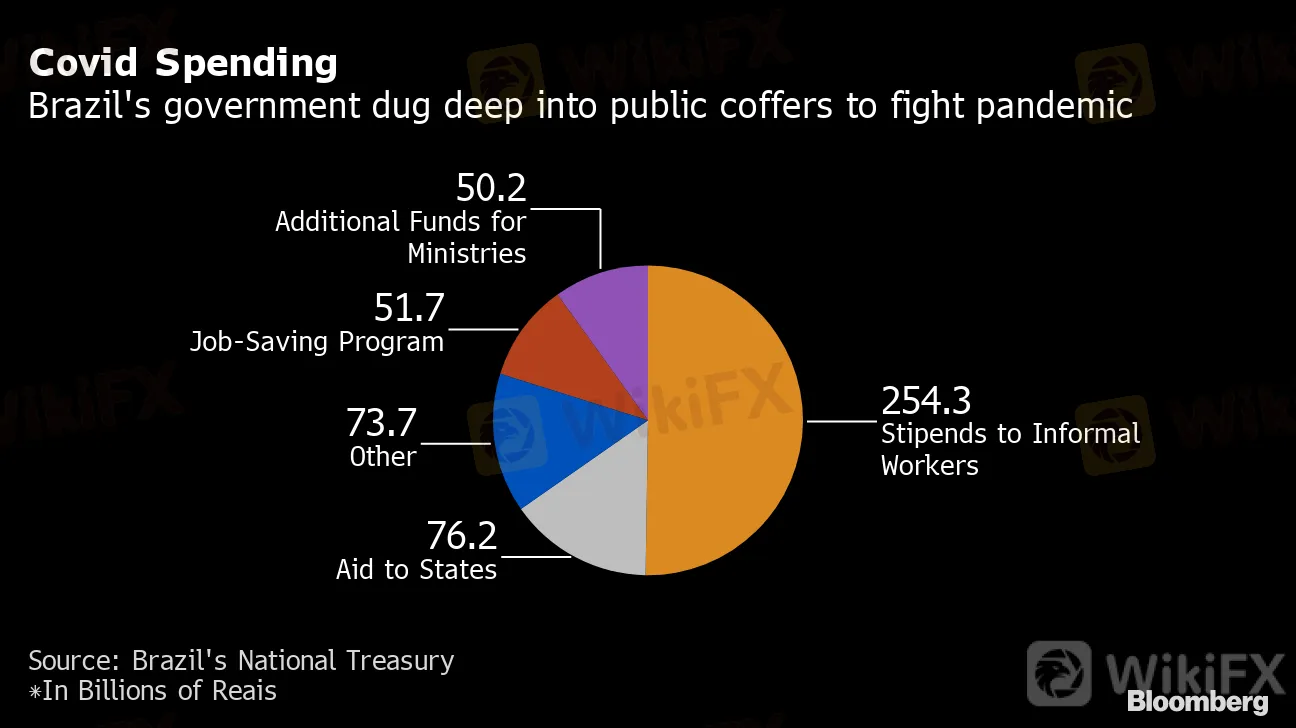简体中文
繁體中文
English
Pусский
日本語
ภาษาไทย
Tiếng Việt
Bahasa Indonesia
Español
हिन्दी
Filippiiniläinen
Français
Deutsch
Português
Türkçe
한국어
العربية
The Worlds Most Reluctant Keynesian Is Spending Big in Brazil
Abstract:As usual in a slump, global policy makers have relied on the spending measures associated with John Maynard Keynes to steer their economies through the coronavirus crisis.Perhaps none has done so with more reluctance than Brazils economy minister.
As usual in a slump, global policy makers have relied on the spending measures associated with John Maynard Keynes to steer their economies through the coronavirus crisis.
Perhaps none has done so with more reluctance than Brazils economy minister.
Paulo Guedes, a University of Chicago-trained economist from the school of hard money, became a market darling by promising to restore discipline to Brazil‘s public finances. He’s about to run up the country‘s biggest ever budget deficit instead. And he’s itching to get back to Plan A, even though the International Monetary Fund has warned the world against a hasty withdrawal of fiscal support.
Dragged Into Deficit
Brazil's plans to trim spending got hijacked by pandemic
Source: Official data through 2019; forecasts compiled by Bloomberg for 2020/21

The whole episode reads like proof of the quip made by another Chicago economist, Nobel prizewinner Robert Lucas, after the 2008 financial crisis: “Everyones a Keynesian in a foxhole.”
That‘s galling for Guedes. He’s an advocate for privatization and tight budgets -- and a disciple of free-market guru Milton Friedman, often seen as the polar opposite of Keynes in the economics world. Guedes was hired by far-right President Jair Bolsonaro with a mandate to reverse years of growth in public outlays under left-leaning governments.
‘Surrender to Reality’
Brazils budget gap soared above 10% of gross domestic product midway through last decade, as the economy plunged into a deep recession. The fiscal disarray cost the country its investment-grade credit rating.
But this year‘s deficit will likely be bigger. Guedes’s ministry predicts 11.5% of GDP, and economists forecast an even higher number.
Like their peers all over the world, Brazil‘s policy makers have had to funnel financial support to households, companies and local authorities to cushion the impact of the pandemic. Latin America’s biggest economy will likely shrink more than 9% this year, according to the IMF.
“I don‘t think Guedes became a Keynesian, but he’s had to surrender to reality,” says Julia Braga, an economics professor at Federal Fluminense University and director of the Brazilian Keynesian Association. “Brazil‘s economy was already very weak. There’s huge slack in the labor market. And no money manager is going to invest where there is no demand.”
Brazil has the world‘s second-biggest coronavirus caseload after the U.S., and Bolsonaro’s government gets blamed for not taking the outbreak seriously enough.
Second-Worst
The scale of Brazil's coronavirus outbreak is only exceeded in U.S.
Source: Bloomberg data

Guedes in March boasted that he could annihilate the virus merely by allocating an extra 5 billion reais ($930 million) to the Health Ministry. Four months and more than 500 billion reais in public spending later, hes changed his tune.
‘Like a Toolbox’
The former professor has also been sparring with critics who‘ve drawn attention to his change of course. Guedes, whose press office declined to comment for this story, says his willingness to draw on traditions of economics outside the one he’s associated with is evidence of a flexible and pragmatic approach.
“Keynes himself said that the economy is like a toolbox, you attack your problem with the right tools,” he told CNN Brasil this month. “If your problem is mass unemployment, you have to attack the problem head on.”
On another occasion, Guedes told lawmakers that hes deeply familiar with the work of the Keynesian school: “I have a whole history of reading these economists in their original languages. It was very easy for me to make a U-turn.”
In fact, Guedes has been pushed into more fiscal easing than hed bargained for.
Brazils signature measure in the fight against the pandemic has been a monthly payment to workers in the informal economy. The stipend was initially set at 200 reais. But Congress increased it to 500 reais –- and then, to avoid a political defeat and take credit for what turned out to be a popular program, Bolsonaro ordered Guedes to make it 600 reais.
Covid Spending
Brazil's government dug deep into public coffers to fight pandemic
Source: Brazil's National Treasury
*In Billions of Reais

Guedes was also reluctant to give financial aid to states and municipalities without some belt-tightening measures in exchange. But he lost a series of battles with Congress and governors, and the transfer of funds has now reached almost 170 billion reais.
‘Turns Into a Pumpkin’
A key concern about the deficit-spending associated with Keynesian policy, especially in emerging economies like Brazil where there‘s always a risk of scaring off foreign investors, is that it will send prices spiraling out of control. That’s far from an academic question in Brazil, which had hyperinflation as recently as the 1990s.
For now, markets dont seem too spooked. The currency took a beating in the first months of the pandemic, forcing the central bank to intervene, but it has steadied in recent weeks.
One reason may be that much of the world is following a similar playbook. Big-budget relief efforts have been undertaken by governments of various ideological stamps –- with backing from the IMF, historically an advocate of tight fiscal policy. Last month IMF chief Kristalina Georgieva urged countries to spend what they can and be careful about withdrawing support too quickly.
Guedes, though, has made it clear he can‘t wait to put Keynes back on the shelf. While there’ll be a large deficit in 2020, “all of that will be reversed next year,” he told CNN. “On December 31st, the carriage turns into a pumpkin.”
After delivering a much-anticipated overhaul of Brazils bloated pension system in 2019, his first year in office, Guedes had pledged to move on to the sale of state companies like power utility Eletrobras. He plans to replace Bolsa Família, the social-aid program created under left-wing President Luiz Inacio Lula da Silva, and shift jobs into the formal economy by reducing costs for employers.
Its just not clear if the virus -- or his boss -- will permit a return to that agenda anytime soon.
Bolsonaro, surrounded by advisers who favor public investment as a way to boost growth, has been happy to extend pandemic-era stimulus measures and shown little enthusiasm for an austerity drive.
Braga, the economics professor, says theres been a change of mood. After a few years in the wilderness, Keynesians who support public spending are back in the national conversation. Before the pandemic, “we were just talking among ourselves,” she said. “Now the debate can happen.”
Disclaimer:
The views in this article only represent the author's personal views, and do not constitute investment advice on this platform. This platform does not guarantee the accuracy, completeness and timeliness of the information in the article, and will not be liable for any loss caused by the use of or reliance on the information in the article.
WikiFX Broker
Latest News
ASIC Sues Binance Australia Derivatives for Misclassifying Retail Clients
WikiFX Review: Is FxPro Reliable?
Malaysian-Thai Fraud Syndicate Dismantled, Millions in Losses Reported
Trading frauds topped the list of scams in India- Report Reveals
AIMS Broker Review
The Hidden Checklist: Five Unconventional Steps to Vet Your Broker
Russia to Fully Ban Crypto Mining in 10 Regions Starting January 1, 2025
YAMARKETS' Jingle Bells Christmas Offer!
Why is there so much exposure against PrimeX Capital?
Doo Financial Expands Regulatory Reach with Offshore Licenses in BVI and Cayman Islands
Currency Calculator


